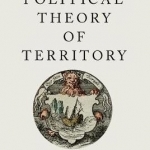A Political Theory of Territory
BookThis item doesn’t have any media yet
2017 | Law
Our world is currently divided into territorial states that resist all attempts to change their borders. But what entitles a state, or the people it represents, to assume monopoly control over a particular piece of the Earth's surface? Why are they allowed to prevent others from entering? What if two or more states, or two or more groups of people, claim the same piece of land? Political philosophy, which has had a great deal to say about the relationship between state and citizen, has largely ignored these questions about territory. This book provides answers. It justifies the idea of territory itself in terms of the moral value of political self-determination; it also justifies, within limits, those elements that we normally associate with territorial rights: rights of jurisdiction, rights over resources, right to control borders and so on.
The book offers normative guidance over a number of important issues facing us today, all of which involve territory and territorial rights, but which are currently dealt with by ad hoc reasoning: disputes over resources; disputes over boundaries, oceans, unoccupied islands, and the frozen Arctic; disputes rooted in historical injustices with regard to land; secessionist conflicts; and irredentist conflicts. In a world in which there is continued pressure on borders and control over resources, from prospective migrants and from the desperate poor, and no coherent theory of territory to think through these problems, this book offers an original, systematic, and sophisticated theory of why territory matters, who has rights over territory, and the scope and limits of these rights.
Related Items:
| Published by | Oxford University Press Inc |
| Edition | Unknown |
| ISBN | 9780190845797 |
| Language | N/A |
Images And Data Courtesy Of: Oxford University Press Inc.
This content (including text, images, videos and other media) is published and used in accordance
with Fair Use.
